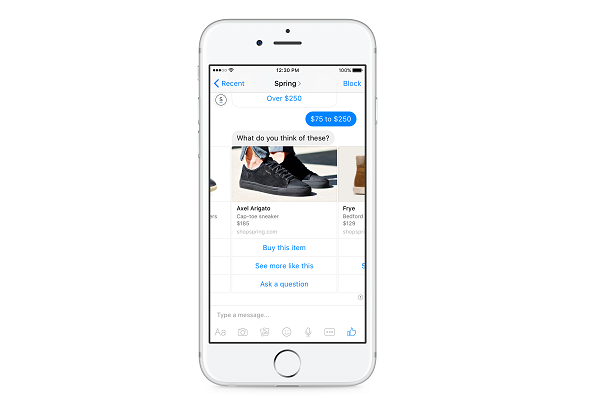Facebook is aiming to lock its users into its Messenger app by launching bots, a technology that will allow businesses to communicate with users.
The social networking company launched Messenger Platform (Beta) as part of its F8 developer conference.
Bots are how Facebook is looking to compete with Apple and Google’s digital helpers, Siri and Google Now.
Bots automatically provide context-specific content such as weather and traffic, customised messaging like receipts or postal notices, or live automated messages.
The ultimate aim is that instead of a user having to move outside of the Messenger app to confirm a hotel reservation, for example, they can do everything within the one place.
A Send/Receive API will allow companies to draw up images and interactive “bubbles” for users, where they can tap on various options.
It has also integrated Wit.ai’s bot engine, which Facebook hopes will help bots get smarter and interpret language better as it learns.
Perhaps anticipating criticisms from users that they may not want endless messages and alerts from third party companies, Facebook said it has built a new suite of policies and controls.
David Marcus, VP of Messaging Products said: “We are focused on facilitating messages from businesses that provide meaningful value to the people who receive them. People will be able to mute and block communications that they don’t want to receive. There are also strict policies for developers and businesses to uphold and we will have review processes to ensure we carefully evaluate how our community is responding.”
Facebook said more than 900 million people globally use Messenger, with more than 50 million businesses also operating on it.
Martin Garner, Senior Vice President, Internet at CCS Insight, said: “Facebook is investing heavily in developers. In doing so, it is continuing to extend the reach of its platform into apps, into various forms of hardware and into an ever broader variety of user interactions. This will take it into a range of new business models and one key challenge will be to be as successful with those as it has been with advertising to date.”


